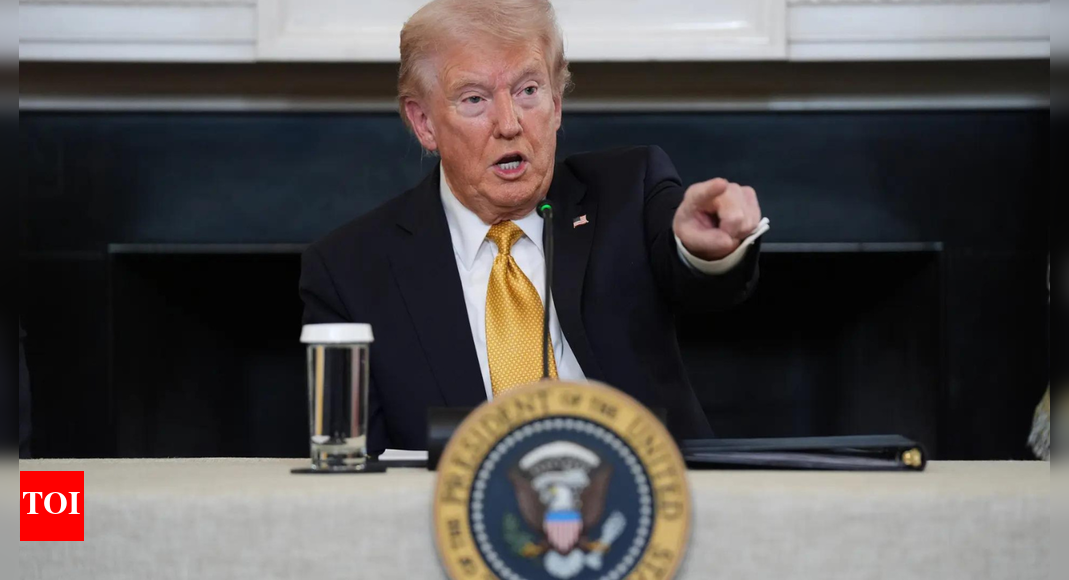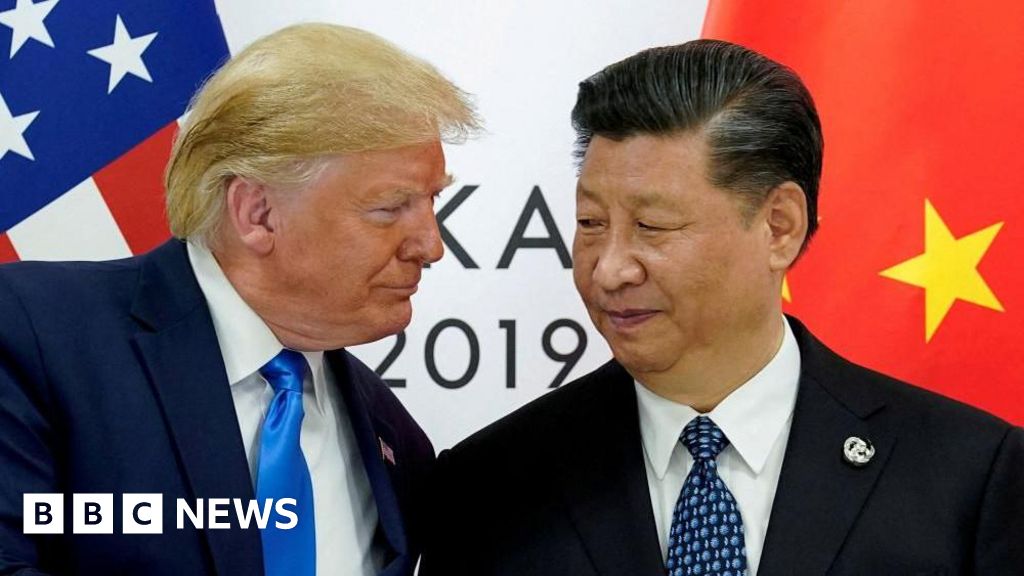Democracies in Europe and their detractors in Washington have radically different understandings of why the continent depends on American military protection. Donald Trump and his aides constantly talk as if crafty Europeans have cynically manipulated the United States for decades, making Americans pay for their defense while Germany, France, and the like enjoy their lavish welfare states, early retirements, and carefree lives. “I fully share your loathing of European freeloading,” Defense Secretary Pete Hegseth told Vice President J. D. Vance in the Trump-administration Signal chat that accidentally included The Atlantic’s Jeffrey Goldberg. “It’s PATHETIC,” Hegseth added.
European leaders, meanwhile, believe their countries have been dutifully following America’s direction on geopolitical matters for 80 years. Hundreds of millions of Europeans have completely subordinated their fate to the desires of the United States, which looks after them, protects them, and even thinks for them. Most Europeans now alive have known no other security arrangements. Contemplating the disappearance of NATO, the U.S.-led military alliance, is so unnerving for many in Europe, including many of the continent’s political leaders, that they seem incapable of thinking for themselves.
But they need to confront that possibility soon. In practice, NATO may already be doomed. The U.S. commitment to European defense was grounded not in the long-ago NATO treaty, but in a political consensus among Americans that a free and democratic Europe was in their interest. Presidents of both parties defended the continent in the Cold War and then oversaw NATO’s subsequent expansion. This policy was a brilliant success. Freedom and democracy spread across the old Eastern bloc, leading to growing prosperity.
Today, Trump and his movement—which dominates the Republican Party—declare that they despise liberal Europe. In the now-infamous Signal chat, when Vance appeared to endorse a delay in bombing Yemen, he implied that Europe would benefit disproportionately from an American attack on the Houthis. The vice president visited Greenland yesterday as part of an American effort to wrest the island from Denmark, a faithful NATO member.
For reasons that are difficult to comprehend as a matter of geopolitical strategy, Trump is moving the United States closer and closer to Vladimir Putin’s Russia, an economically weak but militarily expansionist state that is committed to ending the period of American global dominance. In part because Ukraine, an emerging democracy, sought integration into a U.S.-led security framework in democratic Europe, Russia has attacked that country’s very existence and called for the Ukrainians to surrender much of their internationally recognized territory. Putin had previously invaded one other neighbor—Georgia—and has threatened many others, including the Baltic States, Poland, and Finland. Russia has also worked hard to promote extremist parties across Europe and to subvert democracy in NATO states such as Hungary and Slovakia.
After decades of protecting Europe against Russia, the U.S. has abruptly lurched away from its past commitments. The Trump administration has deprived Ukraine of weapons and intelligence at crucial moments. Trump is helping Russia try to escape from the harsh economic sanctions that have been placed on its economy since the invasion of Ukraine. At this moment, the U.S. could very well be classified as a noncombatant ally of Russia, much like it was a noncombatant ally of Great Britain before Pearl Harbor. While the U.S. was not yet fighting alongside Britain, President Franklin D. Roosevelt wanted the British to defeat Nazi Germany, so he choreographed support for them even without formally siding with them. Trump is offering Russia similar help against Ukraine.
Under these circumstances, a key question is whether European leaders can now emotionally break away from the United States. They have outsourced their strategic thinking, and arguably sacrificed their self-respect, for so long that they no longer know how to defend their continent by themselves. As Trump has moved progressively closer and closer to Putin, European leaders continued to think they could build bridges with Trump’s White House and maintain the Atlantic alliance for a few more years.
Extreme optimists might hold out hope that, however dangerous Trump is, he will be in office only for a few years, and NATO’s unity can be restored once he leaves. But how likely is the post-Trump Republican Party to return to an Atlanticist outlook? Comments by Vance, perhaps the likeliest of Trump’s political heirs, suggest that such a reversion is a long way off. And even if the Democrats regain power, they cannot simply undo the damage Trump has caused. Europe needs to start facing the future, not harkening back to a probably lost past.
A few weeks ago, Germany’s new chancellor, Friedrich Merz, spoke of the need for Europe to be more independent from the United States. French President Emmanuel Macron struck a similar note last year when he discussed sending European forces to Ukraine without American help if need be.
But Europe will need to go beyond rhetoric. Europe has underfunded its own defense for more than 30 years. Military budgets on the continent started collapsing when the Cold War ended. Governments on the continent need to spend more on defense—in some cases twice as much. They must also use their money far more efficiently. European states don’t all need to make their own tanks or other armored personnel carriers. Rationalizing and consolidating production of arms and supplies will be a key long-term survival skill.
In the short term, Europe must also do everything it can to help Ukraine survive—either by providing the supplies that the country needs to continue fighting or by offering real security guarantees in the event of a truce. The more NATO withers and the closer the U.S. draws to Russia, the more Europe needs a strong, democratic Ukraine to help protect its eastern flank.
Europe’s devotion to the United States has left the continent, in a word, pathetic. It now has an opportunity to rebuild its strategic thinking and capabilities, and to learn again how to protect its own freedom and liberties. As Trump flirts dangerously with authoritarianism, Europe needs to save itself. If it can, Europe might also someday play a role in saving the United States.


